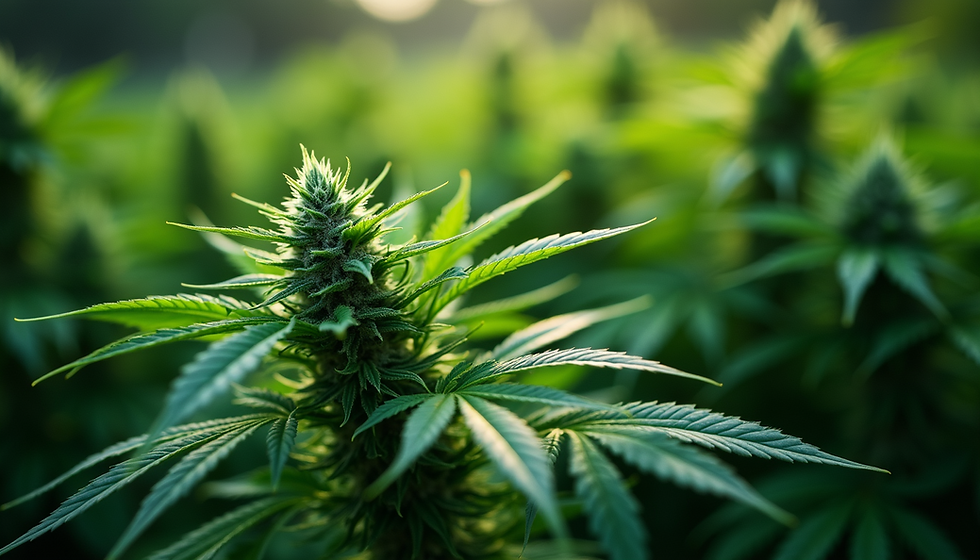Debunking the High Myths: Separating Cannabis Fact from Fiction
- Mar 23, 2024
- 3 min read

Cannabis, one of the most widely used psychoactive substances in the world, has been surrounded by myths and misconceptions for decades. As the global perspective on cannabis shifts towards more acceptance and legalization, it's crucial to address and debunk these enduring myths with scientific evidence and expert opinions. This article aims to separate fact from fiction, providing clarity on some of the most common cannabis misconceptions.
Myth 1: Cannabis Severely Harms Physical Health
Fact: While smoking cannabis, like smoking any substance, can have respiratory effects, the comprehensive impact of cannabis on physical health is nuanced. Research indicates that cannabis has a lower risk profile compared to substances like tobacco and alcohol. The potential medicinal benefits of cannabinoids, such as CBD and THC, in treating a range of conditions from chronic pain to epilepsy, are supported by growing scientific evidence. However, moderation and method of consumption are key factors in mitigating potential risks.
Myth 2: Cannabis is a "Gateway Drug"
Fact: The theory that cannabis use leads individuals to consume more dangerous substances has been largely debunked. Studies suggest that while there is a pattern of drug experimentation among cannabis users, cannabis itself does not cause the use of other drugs. Factors such as social environment, genetics, and personal choice play a more significant role in an individual's propensity to explore other substances.
Myth 3: Cannabis Addiction is Not Possible
Fact: While cannabis is less addictive compared to substances like nicotine and alcohol, it can lead to dependence in some individuals. According to the National Institute on Drug Abuse, about 9% of people who use cannabis may develop dependence. Recognizing the signs of cannabis use disorder and seeking appropriate treatment is important for those affected.
Myth 4: Cannabis Impairs Cognitive Function Long-Term
Fact: The impact of cannabis on cognitive function is a complex issue. While acute cannabis use can impair short-term memory and attention temporarily, the long-term effects are less clear. Some studies suggest that heavy, prolonged use can lead to subtle cognitive impairments, but these effects may be reversible upon cessation. More research is needed to fully understand the long-term cognitive effects of cannabis.
Myth 5: Legalizing Cannabis Leads to Increased Use Among Teens
Fact: Evidence from regions that have legalized cannabis does not support the claim that legalization leads to a surge in use among teenagers. In some cases, studies have shown a stable or even decreased rate of cannabis use among teens post-legalization. Effective regulation, education, and prevention strategies are key components of responsible cannabis legalization.
Myth 6: All Cannabis Produces the Same Effects
Fact: The effects of cannabis can vary widely depending on the strain, the ratio of cannabinoids (such as THC and CBD), and individual physiological factors. Indica and sativa strains are often associated with different effects, and the presence of various terpenes can also influence the user's experience. Personal biochemistry plays a significant role in how individuals react to different strains.
Conclusion
As cannabis becomes more integrated into society, it's essential to approach discussions about its use with accurate information and an open mind. By debunking common myths with scientific evidence and expert insights, we can foster a more informed and nuanced conversation about cannabis, its benefits, and its risks.
Disclaimer
This article is intended for informational purposes only and should not be taken as medical advice. The effects of cannabis can vary widely among individuals, and its legal status differs from place to place. Always consult healthcare professionals and consider local laws when making decisions related to cannabis use.







Comments